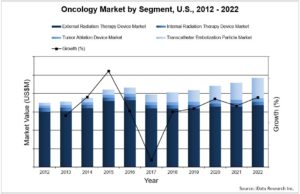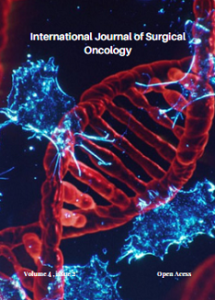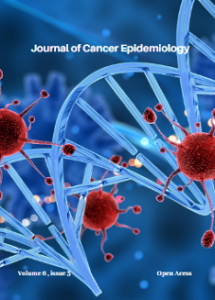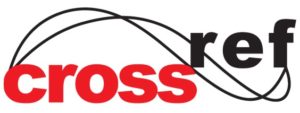
14th European Oncology Conference 2026
March 06-07, 2026, Barcelona, Spain
Theme: Next-Gen Oncology: From Bench to Bedside
It is our distinct pleasure to welcome you to the 14th European Oncology Conference 2026, taking place from March 6–7, 2026, in the vibrant city of Barcelona, Spain. This year’s conference is centered around the theme: “Next-Gen Oncology: From Bench to Bedside” — a forward-looking exploration of translational research, clinical breakthroughs, and cutting-edge innovations in cancer care.
The conference will feature an engaging program including keynote presentations, scientific sessions, invited talks, symposia, workshops, panel discussions, and an exhibition, offering a truly multidisciplinary platform for knowledge exchange and collaboration.
European Oncology Conference 2026 will bring together a global community of experts, including oncologists, cancer researchers, medical scientists, academic professionals, healthcare practitioners, clinicians, industry leaders, scholars, and policy-makers from diverse specialties such as hematology, surgery, radiology, pediatrics, nursing, pathology, advocacy, and pharmaceutical sciences.
This international forum is designed to foster dynamic discussions, present the latest advancements, and inspire collaborative efforts across academia, clinical practice, and industry to accelerate progress in the fight against cancer.
The primary aim of the European Oncology Conference 2026 is to promote innovative research and advancements in cancer research, oncology, cancer therapy, and treatment, with a strong focus on ongoing and future perspectives. The conference is expected to host over 100 delegates from various countries, fostering a truly international dialogue.
This Conference offers a dynamic platform for researchers, academicians, scientists, and industry professionals to share original research, exchange ideas, and explore collaborative opportunities. It serves as an international forum for the presentation and discussion of both theoretical and practical applications across all domains of cancer research and treatment.
The objective is to raise awareness, enhance knowledge, and provide an ideal setting for participants to engage in meaningful dialogue. The conference also aims to foster the exchange of innovative concepts, prototypes, and future research directions. Emphasizing interdisciplinary collaboration, the event reflects the current global trends, challenges, and breakthroughs in cancer science and clinical practice.
Speaker Benefits at European Oncology Conference 2026
- Access to All Sessions Offline and Online
- Handbook & Conference Kit
- Certificate of Presentation by International Organizing Committee (IOCM)
- Convenient to all Scientists, researchers and eminent professors
- Visibility of your profile across world
- Creation one web page for each participants
For any further information/queries, please send mail at:
oncology@scientificmeditech.com; inquiry@scientificmeditech.com
13th European Oncology Conference 2025,
April 23-24, 2025 | Dubai, UAE
Past Conference Report:
We gratefully thank all our wonderful Keynote Speakers, Chairperson, Plenary Speakers, Poster Presenter, Delegates, Students, Media Partners and Associations for making 13th European Oncology Conference 2025, April 23-24, 2025 | Dubai, UAE a grand success.
Scientific Meditech expresses its gratitude to the Webinar Chair, namely Prof. Jianqing Lin, George Washington University School of Medicine and Health Sciences, USA | Prof. Jian Wu, Fudan University, China & Prof. Helidon Nina, Tirana University, Albania and a special thanks to our Moderator Dr. Purnima Rajkarnikar Sthapit, Tilganga Institute of Ophthalmology, Kathmandu, Nepal for the support and coordinate during the sessions. We are indebted to your support.
A very special thanks to Prof. Wei Qiu, Loyola University Chicago, USA & Prof. Jose Oscar Gutiérrez-M, Universidad del Valle, Colombia for the valuable presence and support.
Scientific Meditech would like to convey a warm gratitude and special thanks to below Keynote & Plenary Speakers of 13th European Oncology Conference 2025.
Dr. Rubia Isler Mancuso, University of Campinas, Brazil
Dr. Anita Grigoradis, Breast Cancer Unit, King’s College London, UK
Dr. Mark Cronshaw, University of Birmingham, UK
Dr. Jianqing Lin, George Washington University School of Medicine & Health Sciences, USA
Dr.Vikas Kundra, M.D. Anderson Cancer Center, USA
Dr. Lucia Moletta, University of Padova, Italy
Dr. Qingbin Cui, Sun Yat-sen University Cancer Center, China
Dr. Linoy Mehazri, Bar-Ilan University, Israel
Dr. Jian Wu, Fudan University, China
Dr. Wei Qiu, Loyola University Chicago, USA
Dr. Norrina Binti Jamaluddin, Malaysian Health Technology Assessment (MaHTAS), Malaysia
Dr. Nurfarah Aqilah Ahmad Nizam, Malaysian Health Technology Assessment (MaHTAS), Malaysia
Dr. Sanjeev Chawla, Perelman School of Medicine at University of Pennsylvania, USA
Dr. Valerii Orel, National Cancer Institute of Ukraine, Ukraine
Mr. Vignesh Sivaganesh, Philadelphia College of Osteopathic Medicine, USA
Dr. Huadong Pei, The George Washington University School of Medicine and Health Science, USA
Dr. Cole Bergeron, Louisiana State University Shreveport, USA
Dr. Purnima Rajkarnikar Sthapit, Tilganga Institute of Ophthalmology, Kathmandu, Nepal
Dr. Cristina Romei, University of Pisa, Italy
Dr. Sweta Sharma Saha, Newcastle University, UK
Dr. Jose Oscar Gutiérrez-M, Universidad del Valle, Colombia
Dr. Mónica J Basante-Romo, Universidad del Valle, Colombia
Dr. Rubén Camargo- Amado, Universidad del Valle, Colombia
Dr. Marzieh Ehsani , Institute of Human Genetics, Jena University Hospital, Germany
Dr. Konstantina Karamanou, University of Patras, Greece
Dr. Xiong Zhang, University of California, USA
Dr. Marwa Elsayed , University of Missouri Kansas City, USA
Dr. Ves-Losada Ana, Instituto de Investigaciones Bioquímicas de La Plata (INIBIOLP), Argentina
Dr. Ricardo Fernández Ferreira , Médica Sur Hospital, Mexico
Dr. Helidon Nina, Tirana University, Albania
Dr. Carlos Pérez-Sánchez, Reina Sofia University Hospital, Spain
Dr. Abdelilah Ghannam, Mohammed V University of Rabat Avenue des Nations Unies, Morocco
Dr. El Hadji Seydou MBAYE, International Agency for Research on Cancer, France.
Dr. Nancy K Lonsdorf, Maharishi International University, USA & Many more…
Scientific Sessions and Tracks
Session 01: Cutting-Edge Advances in Cancer Biology and Molecular Oncology
Session 02: Genomic Profiling and Precision Oncology Strategies
Session 03: Cancer Biomarkers and Companion Diagnostics
Session 04: Immuno-Oncology: Checkpoint Inhibitors, CAR-T, and Neoantigen Vaccines
Session 05: Emerging Trends in Targeted and Personalized Cancer Therapies
Session 06: Translational Research and Novel Therapeutic Pathways
Session 07: Drug Discovery, Development, and Clinical Trial Innovation
Session 08: Pharmaceutical Oncology: Delivery Systems and Formulations
Session 09: Cancer Pharmacology and Resistance Mechanisms
Session 10: Cancer Vaccines and Oncolytic Viral Therapies
Session 11: Tumor Microenvironment and Immune Modulation
Session 12: Advances in Cancer Diagnostics and Molecular Staging
Session 13: Liquid Biopsies, ctDNA, and Non-Invasive Monitoring Tools
Session 14: Radiogenomics and AI-Assisted Imaging in Oncology
Session 15: Surgical Oncology and Image-Guided Biopsy Techniques
Session 16: Breast Cancer: Molecular Subtypes and Therapeutic Updates
Session 17: Lung Cancer: Targeted Therapy and Immunotherapy Integration
Session 18: Gynecologic Cancers: Innovations in Ovarian and Cervical Cancer Care
Session 19: Skin Cancer and Melanoma: Early Detection and Immunotherapeutics
Session 20: Brain Tumors and Neuro-Oncology: Research and Clinical Advances
Session 21: Oncology Nursing and Multidisciplinary Care Models
Session 22: Cancer Survivorship, Quality of Life, and Palliative Care
Session 23: Nutrition, Lifestyle Medicine, and Preventive Oncology
Session 24: Traditional, Complementary, and Integrative Cancer Therapies
Session 25: Population Oncology and Cancer Epidemiology
Session 26: Health Equity and Access in Global Cancer Care
Session 27: Clinical Case Reports, Trials-in-Progress, and Lessons Learned
Session 28: Future Directions and Disruptive Innovations in Oncology
Cancer, also called malignancy, is an abnormal growth of cells. There are more than 100 types of cancer, including breast cancer, skin cancer, lung cancer, colon cancer, prostate cancer, and lymphoma. Symptoms vary depending on the type. Cancer treatment may include chemotherapy, radiation, and/or surgery. Possible signs and symptoms include a lump, abnormal bleeding, prolonged cough, unexplained weight loss, and a change in bowel movements. While these symptoms may indicate cancer, they can also have other cause.
The investigation of the malignancy gene helps in targeting the mutation directly in order to treat the disease or prevent it from growth. Advanced genomic testing is helpful in recognizing the DNA variations which can cause the gene alterations resulting in the formation of cancer cells. Genomic testing help oncologists to study the about individual genomic alterations that are unique for each individual, hence preparing personalized medicine to target such mutation cells will be forever helpful in treating the disease.
The growing studies and successful researches in the field have given rise to its market value and is proceeding on its way to grab the entire market and save it from the deadly cancer disease. The global cancer genomics size was valued to be $9216 million in 2014 and grew to be $17.8 billion in 2028. The rising investments by governments in biotech, growth in the number of genomics projects, decreasing sequencing cost and the increasing R&D activities for the development of novel therapies are serving as the main pillars for the growth of the oncogenomics market.

Target Audience
Cancer 2025 brings together individuals who have an interest in different fields of cancer research and can attend Oncology Researchers, Doctors Scientists, Academic researchers, Industry specialists, Scholars in the field of Oncology, Hematology, Surgery, Nursing, Radiology, Paediatrics, Advocacy, etc Cancer Researchers, Cancer research Faculty, Medical Colleges, Radiologists, Chemo therapists, Pathologists, Business Entrepreneurs Pharmaceutical Industries, Healthcare Industries.
Opportunities for Webinar Attendees
| Oral | Poster | Workshop/Symposium | e-Poster | Video Presentation |
Speaker Opportunities : Oral Presentation, Poster Presentation, E-Poster, Video Presentation
WHY TO CHOOSE SCIENTIFIC MEDITECH CONFERENCES

Renowned Speakers
KEY TOPICS
| Lung Cancer |
| Leukemia |
| Radiation Therapy |
| Obesity |
| Breast Cancer |
| Liver Cancer |
| Prostate Cancer |
| Carcinogen |
| Alcohol |
| Melanoma |
| Chemotherapy |
| Infectious Disease |
| Metastasis |
| Ulcer |
| Colorectal Cancer |
| Mesothelioma |
| Brain Tumor |
| Lymphatic System |
| Medical Imaging |
| Skin Cancer |
| Cell Division |
| Disease |
| Lymph |
| Sunlight |
| Osteosarcoma |
| Pancreatic Cancer |
| Cancer Screening |
| Processed Meat |
| Cervical Cancer |
| Targeted Therapy |
| Palliative Care |
| Gastric Cancer |
| Non-Melanoma Skin Cancer |
| Radiation |
| Provirus |
| Carcinoma |
| Oral Cancer |
| Tobacco |
| Benign Tumor |
| Sedentary Lifestyle |
| Ionizing Radiation |
| Helicobacter Pylori |
| Hepatitis B |
| Hepatitis C |
| Epstein–Barr Virus |
| Cancer Staging |
| Stomach Cancer |
| Brain Tumors |
| Kidney Cancer |
| Tobacco Smoking |
| Autopsy |
| Immune System |
| Endocrine System |
| Oncogene |
| Apoptosis |
| Hepatocellular Carcinoma |
| Bladder Cancer |
| Ultraviolet Radiation |
| Hormonal Therapy |
| Biopsy |
| Mutations |
| Vaccination |
| Laser Ablation |
| Laser Coagulation |
| Chronic Myelogenous Leukemia |
| Malignancy |
| Parasites |
| Cachexia |
| Hematuria |
| Hypercalcemia |
| Chemical |
| Hyponatremia |
| Lymphadenopathy |
| Hepatomegaly |
| Testicular Cancer |
| Splenomegaly |
| Manufacturing |
| Nitrosamine |
| Tumours |
| Cancer Signs And Symptoms |
| Anticancer |
| Human Papillomavirus Infection |
| Population Ageing |
| Immunotherapy |
| The Hallmarks Of Cancer |
| Abnormal Vaginal Bleeding |
| Wollastonite |
| Hodgkin'S Lymphoma |
| Organ Donation |
| Neuroblastoma |
| Retinoblastoma |
| Rhabdomyosarcoma |
| Carcinoid |
| Carcinophobia |
| Angiosarcoma |
| Caner |
| Cancroid |
| Leiomyosarcoma |
| Cancerate |
| Neurofibromatosis |
| Body Mass Index |
| Endoscopy |
| Human Papillomavirus |
| Nasopharyngeal Carcinoma |
| Kaposi'S Sarcoma Herpesvirus |
| Kaposi'S Sarcoma |
| Retrovirus |
| Parenchyma |
| Human T-Cell Leukemia Virus-1 |
| Gastric Carcinoma |
| Schistosoma Haematobium |
| Liver Fluke |
| Opisthorchis Viverrini |
| Clonorchis Sinensis |
| Germline |
| Radio Frequency |
| Electric Power Transmission |
| Possible Carcinogen |
| Intravasation |
| Hereditary Cancer |
| Extravasation |
| Ovarian Cancer |
| Hereditary Nonpolyposis Colorectal Cancer |
| Carcinogens |
| Cytogenetics |
| Immunohistochemistry |
| Cancer Immunotherapy |
| Adoptive Cell Transfer |
| Hormone Replacement Therapy |
| Growth Hormone |
| Chronic Lymphocytic Leukemia |
| Cystic Fibrosis |
| Lymphoblastic Leukemia |
| Malignant Tumor |
| Amyotrophic Lateral Sclerosis |
| Malignant Melanoma |
| Acute Myeloid Leukemia |
| Kidney Disease |
| Heart Disease |
| Endometrial Cancer |
| Multiple Sclerosis |
| Acute Leukemia |
| Lymphocytic Leukemia |
| Embryonal Rhabdomyosarcoma |
| Acute Lymphocytic Leukemia |
| Cardiovascular Disease |
| Acute Myelocytic Leukemia |
| Myeloid Leukemia |
| Malignant Transformation |
| Tumor Suppressor Gene |
| Gene Duplication |
| Chromosomal Translocation |
| Philadelphia Chromosome |
| Microscope |
| Fusion Protein |
| Tyrosine Kinase |
| Gene Expression |
| Coding Sequence |
| Tamoxifen |
| Raloxifene |
| Oncology |
| Survival Of The Fittest |
| Somatic Evolution In Cancer |
| Beta-Carotene |
| Tumour Heterogeneity |
| Dna Methylation |
| Genome Instability |
| Dna Mismatch Repair |
| Urinalysis |
| Transmissible Cancer |
| Sticker'S Sarcoma |
| Bone Marrow |
| Anatomical Pathology |
| Cytotoxicity |
| Neoplastic |
| Projectional Radiography |
| Small-Cell Carcinoma |
| Ductal Carcinoma |
| Colorectal Carcinoma |
| Brachytherapy |
| Squamous-Cell Carcinoma |
| Birth Defects |
| Immunosenescence |
| Overdiagnosis |
| Virotherapy |
| Multi-Disciplinary |
| Sexually Transmitted Infection |
| Cancer Biomarker |
| Bone Metastasis |
| Chemotherapy Regimen |
| Alkylating Antineoplastic Agent |
| Combination Therapy |
| Estrogen Receptor |
| Bcr-Abl Tyrosine-Kinase Inhibitor |
| Head And Neck Cancer |

ABOUT US
Scientific Meditech is associated with vitalizing and refining the information about Science, Engineering, and Technology to break down the past, research display and plan another type of connected science in future.
For more details, please visit: Scientific Meditech Conferences
European Oncology Conference 2026
Enquiry
CONTACT US
Scientific Meditech
61 Bridge Street Kington HR53DJ, UK
Phone: +44-1549360032
Email:
oncology@scientificmeditech.com
globaloncomeet@gmail.com
cancertherapy032@gmail.com
cancer.research032@gmail.com
cancercommunityhelp@gmail.com
inquiry@scientificmeditech.com



